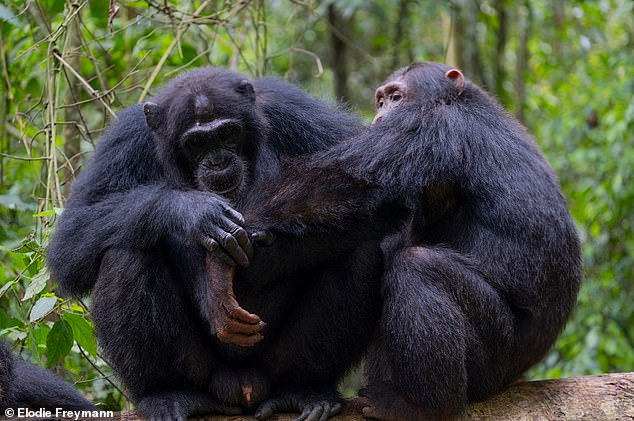
Chimpanzees Discovered Using Medicinal Plants for Wound Care in Groundbreaking Observation
Chimpanzees Display Remarkable "First Aid" Skills, Revealing Clues About Human Evolution
Chimpanzees, our closest living relatives, have stunned scientists with their ability to perform wound care—not just on themselves, but also on others. Researchers in Uganda’s Budongo Forest documented chimps cleaning injuries, applying medicinal plants, and even assisting unrelated peers, offering insights into the origins of human empathy and healthcare.
Altruistic Care in the Wild
A study led by Dr. Elodie Freymann of the University of Oxford captured rare footage of chimps engaging in prosocial care. In one instance, a young chimp treated its knee using chewed bark and leaves. Another clip showed a female delicately tending to her mother’s wound post-attack. Such behavior, observed in both Sonso and Waibira chimp communities, highlights a sophisticated understanding of healing.

Chimps in Budongo Forest use natural materials to treat injuries.
Beyond Family Ties
While similar behaviors have been noted in Gabon, Budongo’s chimps stood out for their willingness to help non-relatives. Researchers recorded 41 instances of care: 34 self-treated wounds and seven cases of prosocial aid, including wound cleaning, snare removal, and hygiene assistance. Remarkably, four acts involved genetically unrelated individuals, suggesting social bonding drives this altruism.

Grooming reinforces social bonds, but chimps also assist strangers with injuries.
Healing Techniques
Chimps employ diverse methods: licking wounds (possibly for antiseptic saliva), pressing fingers to injuries, and applying crushed plants. These practices may prevent infection, though outcomes without intervention remain unclear. Researchers also noted hygiene habits, like cleaning genitals post-mating, hinting at an innate understanding of health risks.
Evolutionary Insights
“This behavior illuminates the roots of human medicine,” Dr. Freymann explained. Chimps’ ability to recognize suffering and act deliberately—even without direct genetic benefit—suggests shared cognitive foundations with humans. Earlier studies revealed Budongo chimps self-medicate with anti-inflammatory plants, but aiding others adds a social dimension to their intelligence.

Dr. Freymann’s research bridges chimp behavior and human evolution.
A Broader Phenomenon
Persistent wound care in Budongo, where 40% of Sonso chimps suffer snare injuries, hints that environmental threats foster cooperation. Similar altruism exists elsewhere: Gabon’s chimps use insects on wounds, while mice have been filmed clearing peers’ airways. Such findings challenge assumptions about animal empathy’s rarity.
Why It Matters
As great apes, chimps (genus Pan) share over 98% of our DNA. Their healthcare behaviors—likely socially learned—deepen our understanding of empathy’s evolution. Future studies may explore how ecological pressures shape these traits, offering clues to humanity’s own medical origins.
This study, published in Frontiers in Ecology and Evolution, reminds us that compassion in the animal kingdom is more widespread—and ancient—than we ever imagined.


